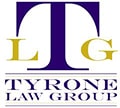In trying times, a probate litigation lawyer comes in handy. You should note that probate court disputes frequently spiral out of control quickly.
Family conflicts might arise or worsen, hurt sentiments can occur, and all of this can happen while you are still mourning over a loved one.
When you are going through this, you should not try not to manage it by yourself. Instead, you should contact a probate attorney. The attorney can do plenty of things, including:
Identifying issues with a will
The laws about estate planning and probate are difficult for the average person to understand.
It is easy to miss an issue or misjudge the ramifications of a will’s wording or decisions made during a probate proceeding. It can be expensive to ignore these problems and fail to address them.
An attorney specializing in probate litigation has the requisite expertise to identify issues in a probate case and the practical understanding to address them. This makes them a great addition to your team.
Address the misconduct of the executor.
The majority of people who draft and sign wills designate an executor. Although the executor may occasionally be a close friend or relative, you should always feel confident in their ability to manage your estate.
Regretfully, executors sometimes mismanage estate assets or decide based on their selfish interests. As a result, the recipients may eventually lose the inheritance they should have gotten if the estate experiences financial loss.
If the need arises, probate litigation attorneys can assist you in identifying and resolving executor misconduct.
Defend you against a will contest.
Individuals on one side of the family can sue other members, who subsequently enter the litigation as defendants.
If you are going through this, your probate litigation lawyer will help you evaluate the case’s facts and develop a counterargument to the other side’s assertions.
Help you contest a will.
Wills sometimes give rise to disagreements. Battles over bequests and assertions that the testator, the person who signed the will, was forced to sign it are frequent occurrences. Regardless of the origin of the dispute, beneficiaries and family members may find themselves in court.
Probate litigators know when and how to challenge a will and will help you go through the process.
Navigate the court system.
Probate cases require interaction with judges and court clerks throughout the entire process. To begin the probate process of a will, executors and administrators must first submit a petition and follow all court directives and estate management guidelines.
When disagreements occur, and someone files a probate case, the situation is even more difficult.
It’s likely that most people have only ever served on juries, so initiating a case or defending against one will be difficult.
Your probate lawyer, however, is knowledgeable about the system from both the plaintiff’s and defendant’s points of view. Stress levels might drop, and your chances of winning your case increase when you have an experienced attorney.
Represent you at trial.
The parties in your dispute may attempt to settle for some point. Should settlement talks fail, a trial may be necessary in your case.
Your probate litigation attorney’s support will be crucial in any scenario. Armed with knowledge of the advantages and disadvantages of your case, your attorney will effectively defend you in settlement talks or a courtroom.
Help you remove executors if necessary.
Sometimes, executors are not reliable. They can fail to promptly get the estate through probate or steal assets from it. It can be time to terminate someone when they aren’t doing their work duties.
Again, your greatest option for getting rid of an executor who has gone rogue or is incompetent is to consult a probate litigation attorney.
What makes a reasonable probate attorney?
For you to hire the right attorney, you need to consider several tips that include:
Experience
Before you hire, find out how much of a probate litigation attorney’s practice area they handle and how much courtroom experience they have.
You should note that some lawyers only assist clients with drafting estate planning forms; others are trial lawyers who focus only on litigation.
Furthermore, general practitioners may deal with various legal concerns; probate matters make up very little of their profession. You should ensure that the lawyer you choose is qualified to handle your particular situation.
Their ability to help with estate planning
A probate litigation attorney handles matters differently from an attorney specializing in trusts and estates. A probate litigation attorney deals with disagreements throughout the probate process, whereas a trusts and estates attorney can help clients create their estate plans, draft documents, and make sure their future intentions are carried out.
Even though some lawyers provide a broad range of legal services, it’s important to know what kind of lawyer and services you need.
When do you need to hire a probate attorney?
If you’re looking for a probate lawyer, it’s most likely because there has previously been a disagreement. While this is the case, litigation might result from a wide range of concerns that can come up during the probate procedure.
You could have grounds to contest the probate procedure, for example, if you doubt the authenticity of your loved one’s last will and testament or believe you were unfairly disinherited.
If the executor of the estate misused cash or violated their fiduciary duties, you may want to consider engaging a probate attorney.
Depending on the particulars of your case, a probate lawyer Largo can advise you on the best course of action.
As mentioned, you should hire the most experienced attorneys who will represent you in court and advise you on the best course of action to take.
